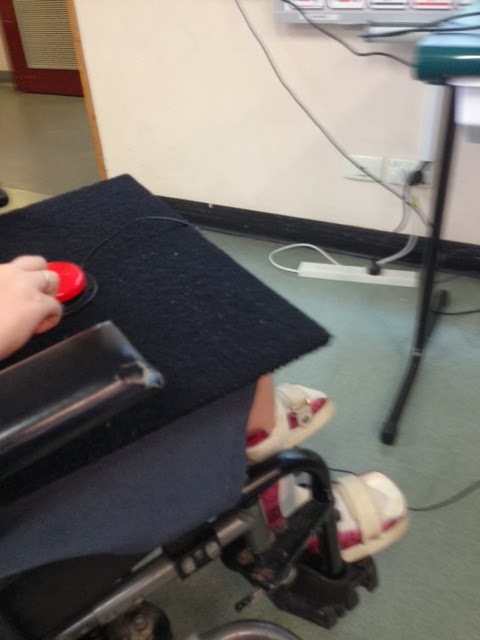Labels is a word with many connotations. In middle school, clothes with labels as the MUST have - and if your mum shops at K-mart, you cut those tags off your jeans so nobody in the locker rooms knows about it! We label things all the times really - we label our coffee mug at work so people can keep their hands OFF it. We have many reasons for why we label different things...
The word labels is one that everyone in the world of disability is very familiar with, and the word stereotype is also one we know. But as human beings, we stereotype for a very good reason. Stereotyping is our brains way of being able to categorize the massive amounts of information that we experience in our world - information we may only experience for very brief periods of time. Our brain has no chance to get the life history on what it is that we have encountered, so we stereotype it based on our previous experiences. It's how we survive and actually, there is nothing wrong with that. Not everyone you see on the street is going to be your life long friend. It's okay for your brain not to explode by trying to process everything.
The trouble is when labels stick forever.
The trouble is when we do become friends with someone but we don't remove the original stereotype we had. It's limiting on what the relationship could be. This isn't just applicable to disability, mind you: it could be to do with someone's race, sexuality, cultural identity, religion, whether they are vegetarian and our thoughts on this, if they have split ends or not: in short, a characteristic or quality that we use to define them - and the inability to see past it.
Culture is changing. It might not feel like it, but in Western society the culture is starting to change slowly but surely to person-first language.
We are starting to refer to someone as "person with a disability" (or special needs, additional needs - whatever floats your boat. I prefer to call a spade a spade). Because they are a person. And they are with a disability. Professionals and people alike are starting to use people-first language. It is catching.
Recently, I wrote "Disability is Not Normal, But..", and I know some people took offence to it. I understand that and I am sorry, but I stand by my word. We live in a society now of political correctness - where people receive a prize for simply turning up - and these can be good things. I am all for building young people's self esteem.
But in our mad rush not to offend people and our desperate desire to make everyone happy, we also try to hurriedly remove the labels we have long put on people with disabilities.
A few years ago I worked a charity gift wrapping stall at Christmastime. In fact, I did it for a couple of years and I highly enjoyed it. I got quite an adrenaline rush as people started queuing for their presents to be wrapped. I was also high on Christmas carols and the general spirit. We all tried to wrap quickly, but neatly and we always tore the price label off quickly.
Often, we made a mess of it.
When you try quickly to take a label off, it often ends up looking different than the first thing. It also looks a lot worse. Now you have this absolute mess going on.
Feeling tongue-tied, trying to make the person with a disability feel better because you've accidentally said to a person in a wheelchair "Would you like to go for a walk with me?" and you are now feeling awkward (by the way: it's okay to say that), you quickly mutter something about supporting people who are differently-abled.
It's like getting the Sharpie out and quickly covering up the price - trying to hide the label all together.
Try as you might: that approach just does not work. We can pretend it does. We can smile, nod and pretend we don't all know what is going on underneath that. But that is not really removing a label - that is simply living a lie.
Removing a label takes time. It takes care. Sometimes, it might even take a bit of creativity. But it is not something that we can hurriedly try to do in a desperate attempt to make everyone feel okay while screaming things about equality. Of course, I believe in equality for people with disabilities. But for a label to be removed, it has to be genuine - else it might as well still be there. It's just like an organization promoting themselves as being inclusive for their image, without having a genuine heart behind it - it simply won't work.
But once the label is off: it is like it was never there in the first place. It simply is what it is, and we can accept it. It mightn't change the nature of the person (or in this case, the bowl) - but the principle of it is important to me because it gives me a chance to show you a different side of me. It gives me a chance to show you that I might be different from that other person with a disability you know, or different from that other person who is Australian that you know...
Removing labels gives us all a chance, in my opinion.
What do you think? How do you feel when you/your loved one is labelled?













